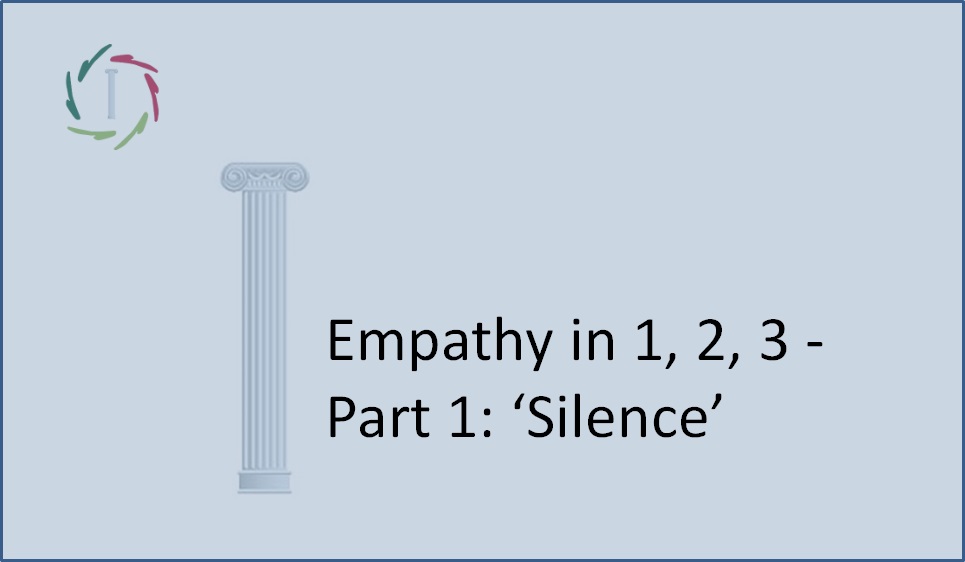Is Empathy a Force of Evil?

Of course not. Still, some describe it this way. The main – but not all – disagreement is one of terminology.
Terms matter. Concepts are important.
See ‘Landscape of Empathy’. In that drawing, I’ve distinguished some related concepts. Others may put other terms to these concepts.
Empathy devoid of rationality
is impossible in my conceptualization, since rationality is part of the definition of empathy. For argument’s sake, I will in the remainder of this text talk about E-W-R (Empathy without Rationality).
Unfortunately, E-W-R sometimes provokes a backlash to empathy.
Out of some kind of ‘idealism’, E-W-R can lead to measures that don’t work out as planned, which may lead others to be suspicious of empathy as such, rejecting empathy as something for the ‘softheaded’, ‘bleeding hearts’. That’s a pity.
Empathy being potentially a powerful driving force, E-W-R is also dangerous, due to
the spotlight nature of E-W-R.
It’s easier to ‘feel’ empathy for people close by than for people far-off, for friends than for non-friends. At the bright side, this facilitates one-on-one relationships, and ‘feeling special’ in the eyes of loved one(s), such as parent-child, very close family.
At the other side, it leaves the rest out of the spotlight. Empathy is ‘innumerate’: caught up in the suffering of individuals, one can become myopic to that of many. For instance, numerous political debates are thus not about whether or not we should empathize, but mainly about whom we should empathize with, such as: foreign refugees or ‘own people’.
One step further, it may create an in-group feeling versus ‘the others’ or even ‘the enemy’. Put this in a concoction without rationality and you have a major potential energy source for discrimination, war etc. This is subtle: what to do with a ‘real enemy’… and what with that real enemy’s enemy? Should one in such matters decide with empathy?
An E-W-R person is vulnerable to manipulation.
A picture of ‘enemy’ can malevolently be stoked up even more through empathy with the enemy’s victims, especially if these are from the empathizer’s in-group.
Manipulation can also make ‘being an enemy’ reason enough for treating him badly. I strongly disagree. What should cause action is never his ‘being an enemy’ but his ‘being a threat’.
Rationality shows us how we need to let our empathy flow in diverse ways as appropriate to circumstances.
E AND R: nature gave us both instruments
Actually, to separate them is already quite unnatural: brain-wise we see more overlap than distinction (to say it mildly) between more ‘emotional’ and more ‘cognitive’ regions. Scientists used to think these were quite strictly divided. Not so. That doesn’t mean we cannot be rational, but that we are rational with our emotional life engrained. If you think about it: why should nature have done otherwise? It’s so straightforward.
Plea
This text is of course a plea for empathy PLUS rationality.
I think that when talking about the same thing, almost everyone can agree that empathy is one of humanity’s greatest assets.


